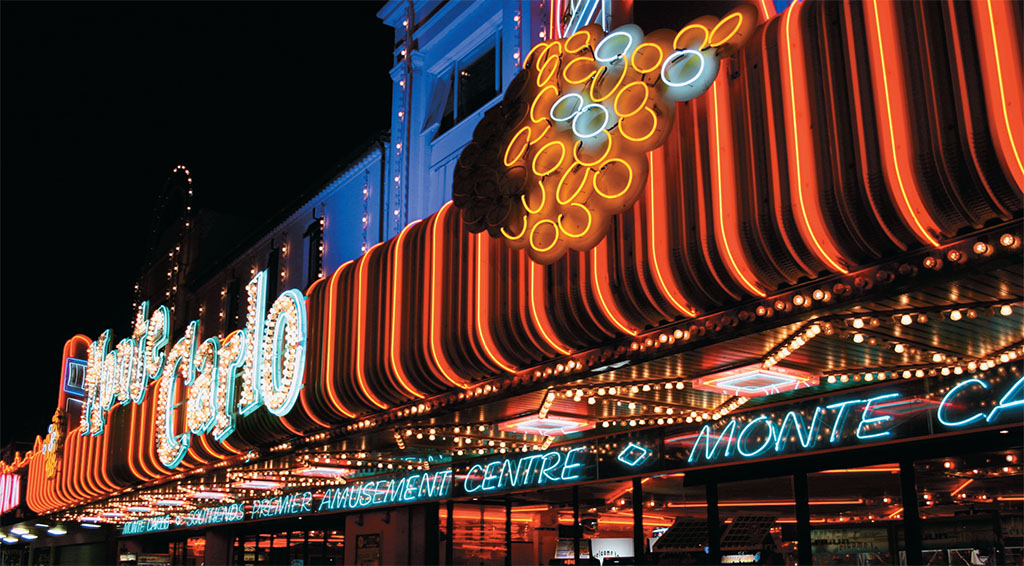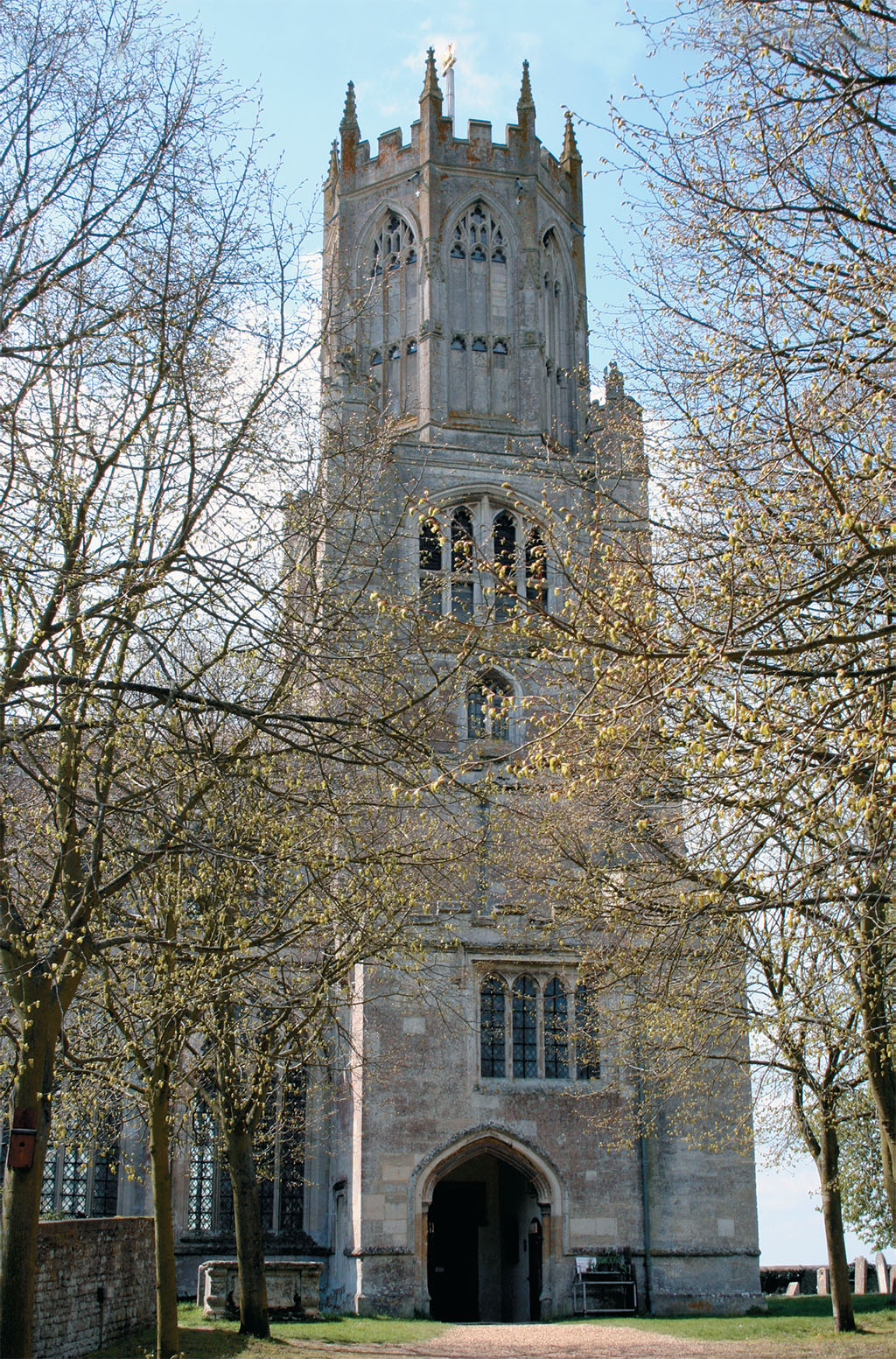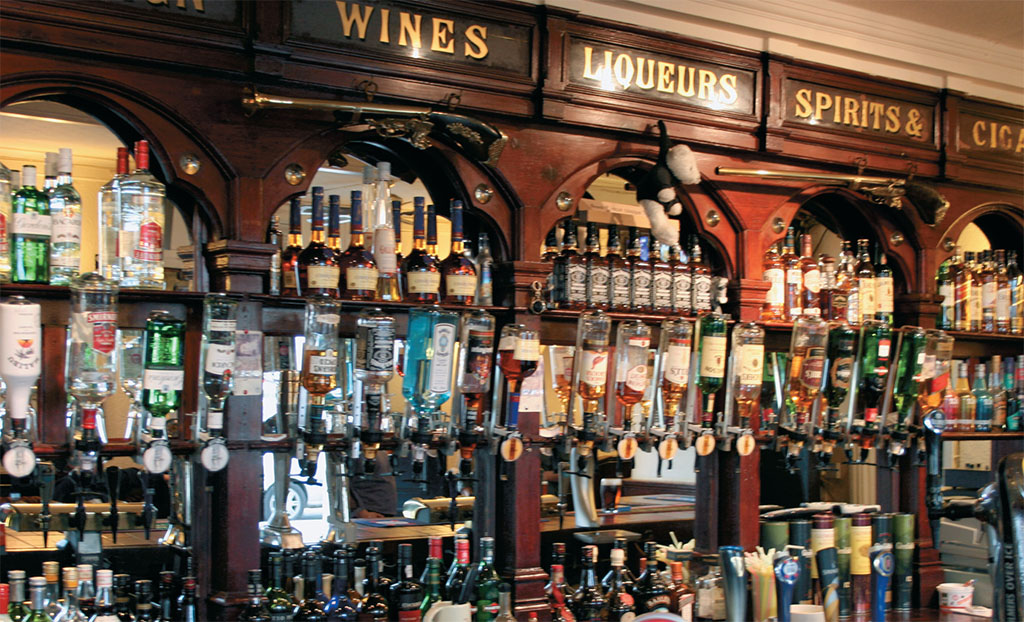
[caption id="ItsNoHolidayontheRoadinGreatBritain_img1" align="aligncenter" width="261"]

DANA HUNTLEY
REGULAR READERS of British Heritage, or at least regular readers of “Sceptered Isle,” have followed my travels and machinations around Britain for some years. Even now, I am laying plans for this autumn’s jaunt around the island. Over the last couple of years, my purposeful rambles have taken readers along from the English Riviera to Southend-on-Sea, the coal valleys of South Wales to northern Aberdeen-shire. It looks like we’re heading to Shropshire to begin October’s adventures.
That British Heritage influences and steers the course of many readers on their travels in England, Scotland and Wales each year is both a great mission and a large responsibility. This charge we do not undertake lightly. Often I receive notes like Anita Shaw’s (see “Anglofile,” p.65) reminding me of that mission. After all, there is a great difference between a holiday and the kind of travel British Heritage readers undertake in Britain.
My ruminations on this autumn’s destinations coincided with a Daily Mail article noting that some 39 percent of Britons would be foregoing their annual summer foreign holiday in 2011. Foreign holidays taken by British families are down three percent in the past year. To a New Hampshire farm boy like me, it’s amazing to be living in an age where an economic downturn means that a percentage of working and middle class British families are skipping their fortnight’s holiday on the Mediterranean.
The upside, of course, is that Britain’s seaside resorts are optimistic that they’ll be the beneficiaries of this latest summer of the “staycation.” After all, that is the archetypal idea of the English holiday: to go and stay at a seaside hotel or guest accommodation, spend mornings in the sun (beachfront or pool side), drink at lunchtime, spend more time in the sun, go in and nap it off, go out in the evening for dinner and plenty of drinks. Sleep late.
[caption id="ItsNoHolidayontheRoadinGreatBritain_img2" align="aligncenter" width="1024"]

DANA HUNTLEY
The downside is that even if this archetypal model is true, British hotel and dining prices are far more expensive than those available on all-inclusive packages to the Med. It just costs more to have an equivalent holiday in Britain than abroad. Campgrounds, however, report that they are enjoying a boom in bookings.
No, of course, not all Britons travel abroad for the sybaritic pleasures of sun, tapas and tequila. But British travel patterns alone over the last three decades have created the archetype. “Holiday” to Britons generally implies travel to semi-organized playtime with as much sun as possible.
Even those highly proficient in both American and British dialects tend to use the British “holiday” and the American “vacation” interchangeably. Holiday to the British means going somewhere away—for lazy pleasure and a release from routine responsibilities. Vacation to Americans means simply taking time off from work—for whatever purpose.
No self-respecting Brit would regard a few days’ visit with Mum in Norfolk as a “holiday.” Americans unselfconsciously use vacation days on a visit to family in Ohio or on the coast of Maine.
Wherever they might end up in Britain, which is admittedly unlikely to be a seaside resort for a fortnight, American travelers, and British Heritage readers in particular, may well be on vacation, but aren’t likely to be or feel “on holiday” in the British understanding of the phrase. Even those faithful British Heritage readers who are British expats back in England to visit Mum aren’t apt to think of themselves as on holiday.
It might be family roots, church history, great novels and poetry, gardens or castles that motivates, or first motivated, your interest in Great Britain. In whatever fashion our sceptered island, its home nations, culture and history have beguiled us, when we travel in Britain what we do is most certainly not sedate or disengaged.We pick our visits and design our itineraries by places we want to see, or by themes, or even by whim, but we visit purposefully. British Heritage travelers may be on vacation, but lying around in the sun is not our object.
Inevitably, each of us begins as a tourist. Everything is new and we are eager, soaking in the variegated life of London and such environs as we first encounter. Quick are our generalizations about English life (likely to be especially inadequate if based principally upon observation in London). The age, the beauty, the order and the accessibility of our experience dazzle us in individual and particular ways. It might be the soaring bell towers of medieval cathedrals, castle ramparts nearly 1,000 years old, the overwhelming color and symmetry of English gardens, or a pint of bitter in a pub garden. It might be watching the pages of Jane Austen come to life in Bath, ponies wandering freely in the New Forest, or a visit to the Old Rectory at Epworth. In one fashion or another, though, Britain enlivens our imagination, gives us a feeling of historic roots and connects our relatively young American culture to a larger, more ancient cultural tradition.
[caption id="ItsNoHolidayontheRoadinGreatBritain_img3" align="aligncenter" width="1024"]

DANA HUNTLEY
Very possibly, we become Anglophiles. Few American or Canadian visitors to Britain repatriate to our own shores without a desire to return to Britain again. It was something my old Yankee grandfather couldn’t understand when I planned my third trip to Britain some 30 years ago: “Why do you want to go to England again? You’ve already been.” Most of us have someone like that in the family.
So, we return to Britain again and again, always finding new and interesting destinations. And we graduate from being a tourist to being a cultural traveler—a visitor, yes, but certainly not on holiday. Whether we drive, take the train or cobble together the patchwork of Britain’s public transport, we get there. And wherever we are, be it Bristol or Bradford, we are generally delighted by our experience. We may be seeking out industrial history, stately homes or Norman churches, but the last thing we’re apt to do is wile away our afternoon on a hotel sun porch waiting for tea at four o’clock.
[caption id="ItsNoHolidayontheRoadinGreatBritain_img4" align="aligncenter" width="1024"]

DANA HUNTLEY
Tennyson expressed the traveler’s sentiments in “Ulysses,” “Yet all experience is an arch, wherethro’ Gleams that untravell’d world whose margin fades For ever and For ever when I move.” That’s the way it is. Everything new we see and experience in Britain seems to kindle within us a desire for more—theater in the West End, tea in a Yorkshire village, Cornish fishing ports or the streets of Edinburgh. It’s all interesting. While a holiday implies disengagement, we want to engage.
[caption id="ItsNoHolidayontheRoadinGreatBritain_img5" align="aligncenter" width="1024"]

DANA HUNTLEY
We are living the history. Of course, we could go on a cruise instead. That would be a holiday.





Comments